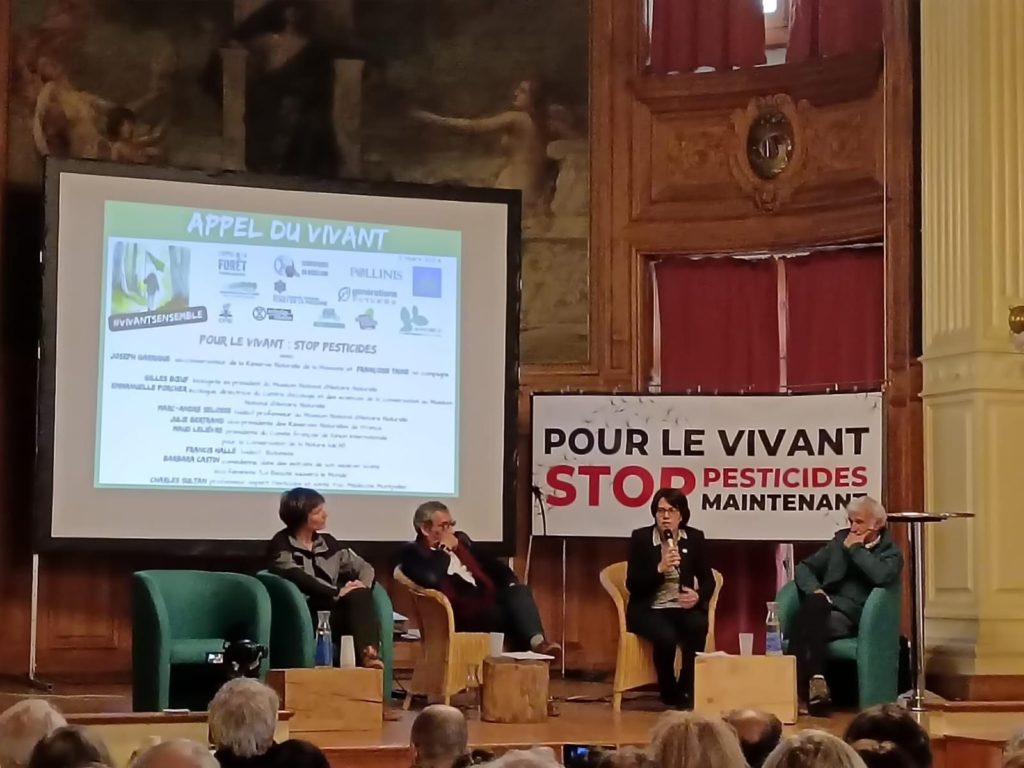
On March 2, 2024, I had the honor of speaking at the Climate Academy in Paris to mark the arrival of Joseph Garrigue and his partner Françoise Taine’s march. Since January 13, they have covered 900 kilometers to demand an immediate halt to pesticide use while raising awareness about the dangers of biodiversity collapse and species extinction.
Joseph Garrigue, former curator of the National Nature Reserve of the Massane Forest in the Pyrénées-Orientales, brings valuable expertise on biodiversity preservation issues. The Massane Forest, an ecological gem, is home to over 7,800 species, many of which are endemic to the region. Despite its protected status, the forest is threatened by pesticide infiltration, which contaminates soils and waters, jeopardizing the fauna and flora living there.
Chemical pollution ranks as the third factor contributing to biodiversity destruction. Combating pesticides is an absolute necessity to preserve our biodiversity. Chemicals used in intensive agriculture have devastating effects on ecosystems, causing the disappearance of many species and disrupting food chains. These products contribute to the decline of pollinators, crucial actors in food production and biodiversity preservation, relying on flower diversity for sustenance. According to the IUCN Red List, 16.5% of vertebrate pollinators (bats and birds) are threatened with extinction.
This situation highlights the need to shift towards more environmentally-friendly agriculture. Sustainable agricultural practices such as organic farming, permaculture, and agroforestry offer viable and environmentally-respectful alternatives. They help reduce our dependence on pesticides, preserve biodiversity, and maintain healthy ecosystems.

Comments are closed